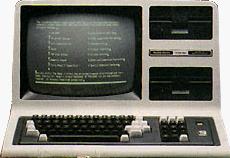 Most people these days use computers every day. Some people even get quite proficient. They use a number of programs, they may even customize their bobs and bits on these programs: record their own macros in excel, change their mouse pointers, change the color scheme in windows. They may know more than their peers at work, and may even 'fix stuff' for their relatives. High level user stuff.
Most people these days use computers every day. Some people even get quite proficient. They use a number of programs, they may even customize their bobs and bits on these programs: record their own macros in excel, change their mouse pointers, change the color scheme in windows. They may know more than their peers at work, and may even 'fix stuff' for their relatives. High level user stuff.This does not make them an expert in computers. In the IT industry we call these people 'super-users.'
Most of these types of users can manipulate, but they only know one way to do something. They don't understand the underlying principals of WHY something works, they only know that if you shake the chicken bone this way it makes lights blink a certain way. They understand the methods for making the computer work, but not the principals.
Working in IT I very often do not know the methods for making various programs do what people want them to do, but I understand the principals behind them so I can generally get the music to play, and if something is truly broken I know what the fix is. Super-users do not. If something is broken, they keep bashing away with methods until something 'works,' or the machine completely falls apart.
Similarly the biggest guy in your gym, or possibly even your 'trainer.' May know methods that work for them, and may have tinkered around with a few methods that didn't but did work for others, but if they don't understand the underlying principals what they are recommending is simply scatter-shot. They're throwing ideas out to see if they stick. This can lead to serious injuries for trainees at worst, or no results beyond a certain point at best. In short, if your find yourself in this position ditch the super-user and find a professional.
Signs that your trainer is a "super-user:"
- No assessment: A professional should understand your goals, injury history, ideally take you through a movement based assessment.
- Everybody does the same thing: there is one program (or two) and every client does the exact same thing just with different weights, extra bonus points if Monday is 'chest and tris day.' Each athlete doesn't have to have radically different programs, but there should be differences.
- Static programming: you lift the same weights for a while, nothing changes. It's groundhog day every day/week you go to the gym. There needs to be progress. You should see changes in a few weeks/months.
- No programming at all: you walk in and have no earthly idea what you're going to be doing today other than getting sweaty. Extra bonus points if you have to check a whiteboard for that day's workout. Extra super bonus points if you have to constantly ask "what's next."*
- You get hurt and nothing changes: People who understand principals do not have to doggedly stick to the same movements. If it hurts your shoulder to back squat your trainer should be able to adjust (even on the fly) and get you a similar training effect.
- They never ask for feedback outside of the gym. One of the best ways I get feedback from clients is by being facebook friends with them. If someone is posting "hate you all, only my cat understands me." All the time: calories are probably a little too low or workload is too high. If an athlete's status is "I am become death, destroyer of worlds!" probably going to be a good day in the gym.
- They can't tell you why: everything should be in a program for a reason. Sets, reps, movements and loads should be purposeful.
Mahalo
No comments:
Post a Comment